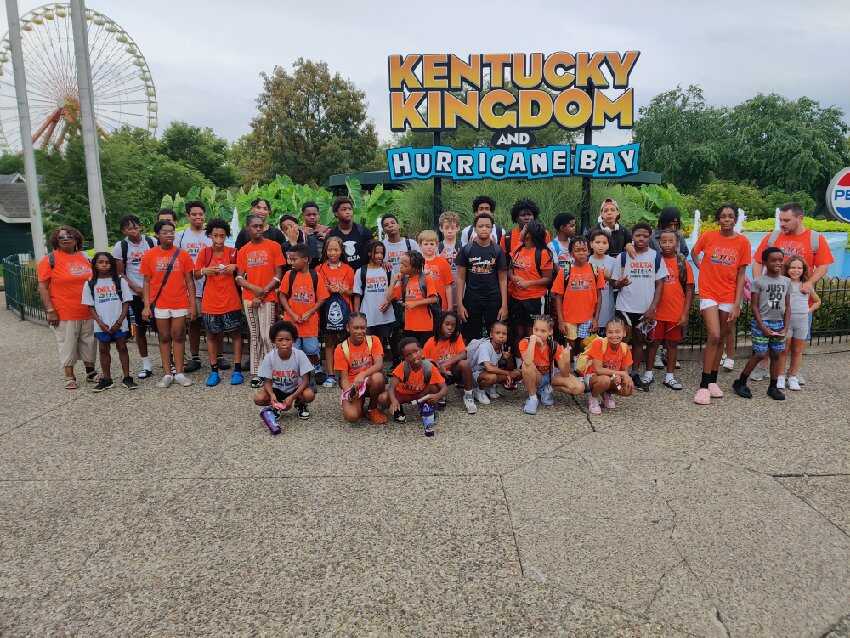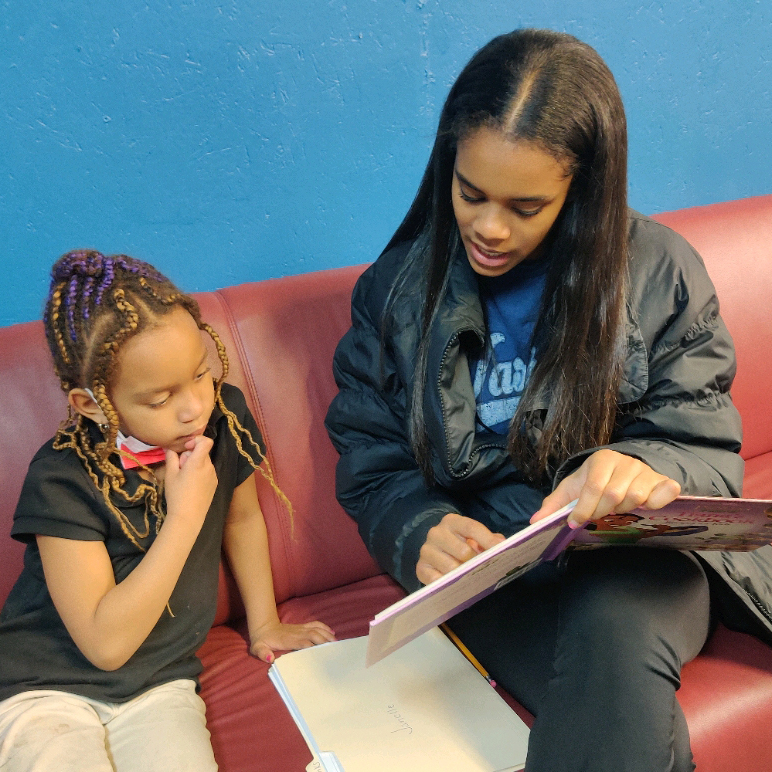Wes Hinton grew up in Louisville, was an avid athlete and sports fan, and noticed something among friends and fellow athletes.
While the season was in play, students attended school, kept their grades up, and kept their behavior in check. However, when the season ended, Hinton noticed the struggle to maintain consistency began to take hold.
“I realized that sports have power in our community,” Hinton said. “Here are people who have the opportunity to play professionally and they end up incarcerated.”
He began coaching in college, and upon graduating, Hinton went back to his hometown as a teacher and coach for several middle schools and high schools in the area.
Again, the power of sports was apparent. “There are 2,000 kids in the high school and when sports go away, life goes sideways,” he said. “By 18, if they’re still alive, they’ve lived the life of a 40-year-old. I started asking myself, ‘What can I do? How can I fix this?’”
He began creating opportunities for the best athletes in the local high schools.
Hinton was calling junior-college recruiters and sending film to various college programs. He invited them out to a senior showcase, at one point hosting 25 colleges. Dozens of student-athletes received scholarships, but one thing was clear; their grade point averages (GPAs) were holding them back.
“I realized I’ve got to catch these kids earlier,” he said. “By the time eighth grade rolls around, it’s too late. We want to improve attendance and behavior, and develop them as young men and women early on.”
The Developing Educated Leaders Through Athletics (DELTA) Foundation was born in 2017.
Hinton began reaching out to the middle schools and high schools he’d worked with in the past, and told them not to send their best player, but the one who wouldn’t graduate without their love of sports. Little by little, the program began to grow, mainly through the students’ love of basketball.
“We began offering weekly tutoring, providing mentors and doing grade checks,” he said. “No one touches the court until they’ve touched the classroom.”
DELTA needed a home base but start-up programs are often omitted from grant funds initially.
Through his friendship with Ron Turnier of Creation Gardens, Hinton was able to secure funding for the first year of the nonprofit, including a location at an old Louisville gymnasium at 2508 Portland Avenue. It included a kitchen, classrooms and, of course, a basketball court.
He calls the after-school program Hoops and Homework, and that first summer, the DELTA Foundation welcomed more than 50 students to their Books and Basketball program.
“Every day they come in and go straight to the classroom,” Hinton said. “There’s homework assistance and a full reading and literacy curriculum. Everyone has a mandatory 30 minutes in the classroom, and then we feed them and do basketball training and games.”
There’s strong focus on literacy – a need Hinton identified early on.
“We test their reading level as soon as they get here, and the average is three grades below where they should be,” Hinton said. “The main issue contributing to the low GPAs is they have to learn how to read – not to knock other subjects, but if you can’t read, what are you going to do in this world?”
By March of 2020 DELTA had reached full capacity, serving 65 to 70 students with an average attendance of 50 each day. Then the pandemic arrived, and like many other organizations, DELTA was affected in a big way.

“We were just starting to make a real difference and everything was perfect,” Hinton said. “This shutdown could’ve been bad, but by April we saw how some of the youth services were crucial, and if you could provide space for 10 students within so many feet of each other, you could have them.”
Thanks to the gymnasium, Hinton could bring in 30 students safely, and the staff and volunteers got back to work.
“School was being done virtually but I don’t have virtual kids,” Hinton said. “We started offering all-day class. Bring your class schedule and your Chromebook from school, and we’re going to make sure you attend every class, and everything is done.”
The pandemic brought on other progress in DELTA’s mission as well. All of the sudden, Hinton said, those who didn’t see the value in sports and academics combined were focused on mental health and wellness.
“It took a pandemic for everyone to see how important this is, and it opened up doors that were previously shut,” Hinton said.
Since then, with the help of generous donors, the classrooms have been renovated, a new basketball court and goals have been installed, high-speed Wi-Fi is running and a new HVAC air unit has been added.
Hinton recently signed another five-year lease and expansion is on the horizon.
Thirteen other youth nonprofits now rent space in the building, and it’s formed a campus-like atmosphere. Whatever the students are looking for, they can likely find it all in one place.
“We’ve also expanded to Newburg,” Hinton said. “We received an Impact 100 grant for education. My dream was to have this program in the Newburg area and we struggled finding another brick-and-mortar location, but the Boys & Girls Club in Newburg allowed us to bring Hoops and Homework there after school. We have a classroom and use of half of the gymnasium there.”
With different school systems and different students came different needs, and once again Hinton adapted. Staff at the new location noticed that while the reading levels were higher in Newburg, the students could use more life-skills education. They developed a curriculum to learn about drugs and alcohol, racism, teen relationships and other important topics.
At DELTA, they’ve also expanded beyond basketball.
“I realized I have a lot of beginners and many of these kids have never had the option to play on a team, so we started developing leagues,” Hinton said. “They’re getting practice throughout the week and we come back here on the weekends for games.”

The girls expressed an interest in volleyball, so Hinton built another program for the additional sport. Then came archery, digital media, arts and crafts, and other enrichment opportunities.
“It’s constant strategizing,” Hinton said. “You have to flexible. It’s more about what the kids need when they need it. Last summer we saw a lot of kids with a lot more anger, and we added in mental health and brought in a paid therapist.”
They now have more than 160 youths touched by the various programs.
Partnerships with colleges, nonprofits, parents and grandparents have made the program successful. Hinton is beginning to see former students of DELTA graduate college and return to give back to the organization.
“DELTA is going to keep doing what DELTA does,” he said. “It’s really important to me that these kids continue growing and learning, and that they’re successful in the future.”




